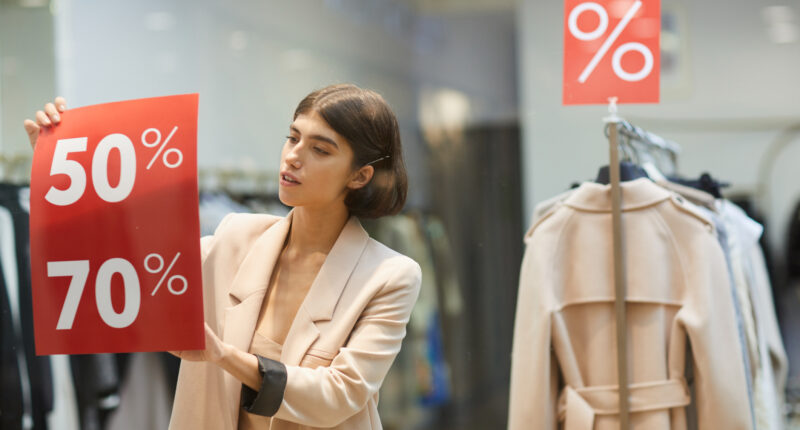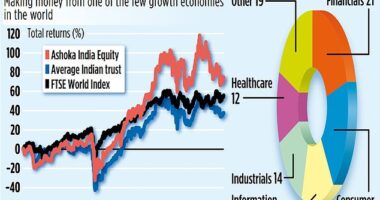THE rate of inflation has started to fall — giving hope that the worst of painful price rises may be over.
Official figures yesterday showed it dipped slightly at the end of the year as petrol prices fell and retailers discounted clothes.
Inflation in December was at 10.5 per cent, down from November’s 10.7 per cent.
The two months of falls came after a 41-year high of 11.1 per cent in October.
But the inflation rate is still five times higher than the Bank of England’s target of two per cent.
Food prices soared by 16.8 per cent in the year to December, with basics such as milk, cheese and eggs seeing the largest increases.


The price of sugar, jam, honey, chocolate, soft drinks and juices also leapt, according to the Office for National Statistics.
Inflation measures the rate at which prices have increased on a range of goods compared to a year ago.
Groceries, energy and fuel costs have all been hit by a pandemic hangover, the war in Ukraine and a shortage of essential workers.
Chancellor Jeremy Hunt has said that high inflation is “a nightmare for family budgets, destroys business investment and leads to strike action”. He added: “So, however tough, we need to stick to our plan to bring it down.”
Most read in Money
Lower inflation could mean there is less pressure on the Bank of England to hike interest rates.
But City traders believe they will still hit a peak of 4.5 per cent from the current 3.5 per cent — meaning higher mortgage and borrowing costs.
Although inflation is softening, economists warn households will struggle as real pay growth is being eroded by higher prices, meaning that more income is being spent on essentials.
While prices grew by 10.5 per cent in November, private sector pay rose by just 7.2 per cent and public sector pay by 3.3 per cent.
Dannie Hewson, financial analyst at AJ Bell, said: “It’s the first time since the pandemic that inflation has fallen for two months in a row — though the fall won’t feel significant to people doing their weekly shop.
“Whilst prices at the pump have been falling, a lot of important stuff is still going up. Energy costs are still having a big impact on lives.”











